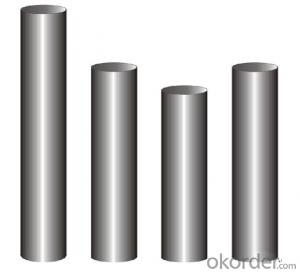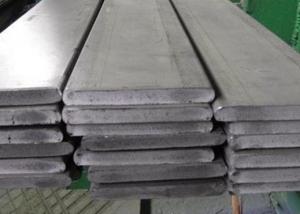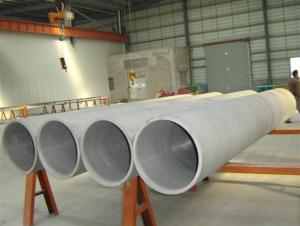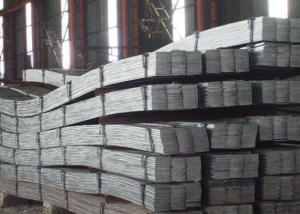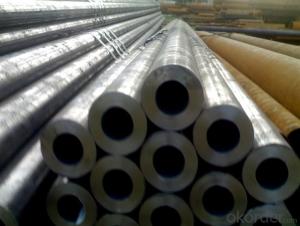stainless steel welded pipe
OKorder Service Pledge
OKorder Financial Service
You Might Also Like
stainless steel welded pipe
Stainless steel is a production which not easy rust,acid resistance and corrosion resistance,so it is widely used in light industry,heavy industry,daily necessities and the decoration industry.my company long term supply stainless steel porducts including:stainless steel sheet,stainless steel coil and stainless steel tube
Specifications
1.Specification:21.3*3.73mm or others
2.Surface:4k/6k//8k
3.Length:6m or as your requirement
A series of photos
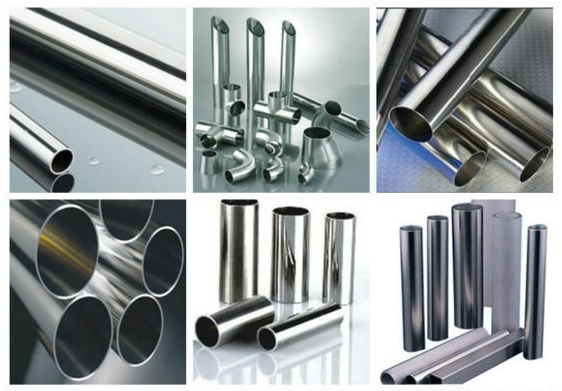

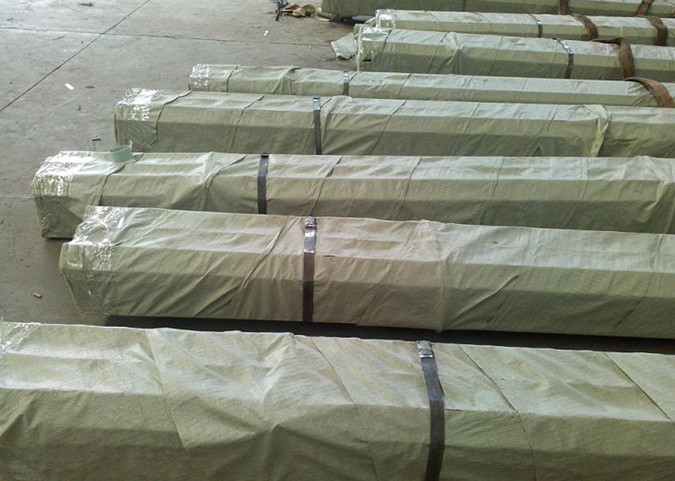
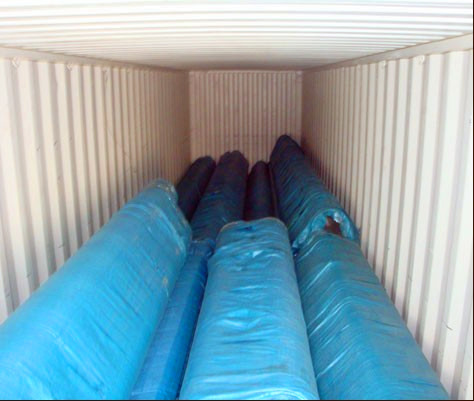
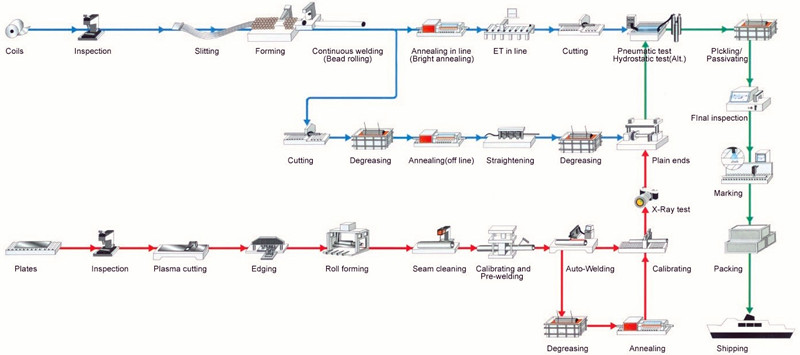
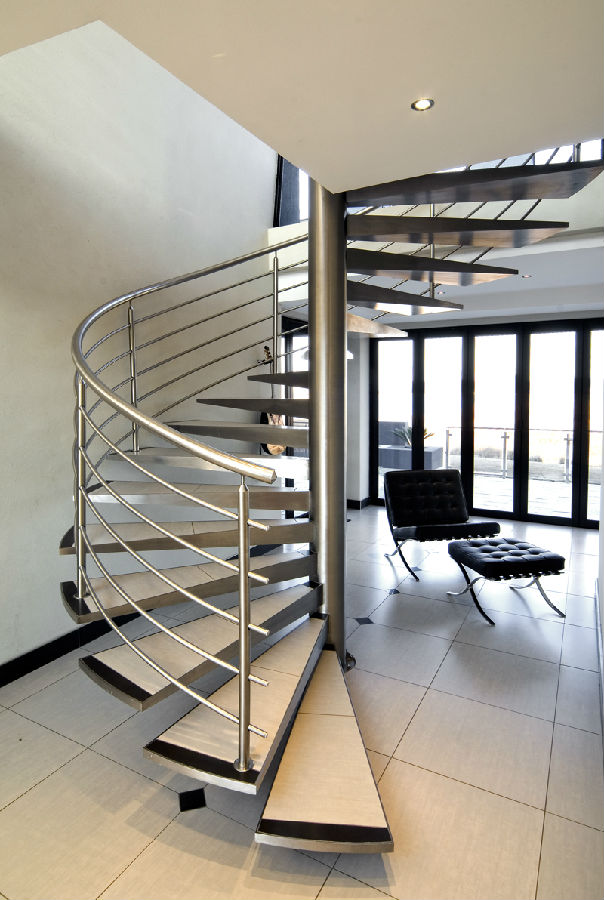
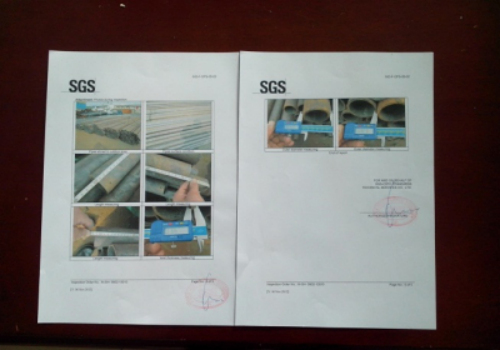
A series of pictures
- Q:Mechanical properties of stainless steel tubes
- Strength (tensile strength, yield strength) the strength of stainless steel is determined by various factors, but the most important and basic factor is the addition of different chemical factors, mainly metallic elements. Different types of stainless steel have different strength characteristics due to their differences in chemical composition.
- Q:What is the difference between stainless steel pipes and PVC pipes?
- Stainless steel pipes are made from a durable and corrosion-resistant material, while PVC pipes are made from a lightweight and cost-effective plastic. Stainless steel pipes are suitable for high-pressure and high-temperature applications, while PVC pipes are commonly used for water supply and drainage systems. Additionally, stainless steel pipes have a longer lifespan and can withstand harsh environmental conditions, whereas PVC pipes may degrade over time and are more prone to cracking or breaking.
- Q:How about stainless steel 2520 and 316?
- 316 stainless steel by adding Mo element, the corrosion resistance, and high temperature strength has greatly improved, high temperature can reach 1200-1300 degrees, can be used in severe conditions. Uses: marine equipment, chemicals, dyes, paper, oxalic acid, fertilizer and other production equipment; photography, food industry, coastal facilities, ropes, CD poles, bolts, nuts.
- Q:Are stainless steel pipes suitable for chemical reactors?
- Yes, stainless steel pipes are suitable for chemical reactors. Stainless steel is known for its excellent corrosion resistance properties, making it an ideal choice for handling various chemicals and acids in a reactor system. Additionally, stainless steel pipes offer high strength, durability, and heat resistance, ensuring safe and efficient operation in chemical processes.
- Q:Can stainless steel pipes be polished?
- Yes, stainless steel pipes can be polished. Stainless steel is a versatile and durable material that can be polished to enhance its appearance and provide a smoother finish. Polishing stainless steel pipes involves using abrasive materials, such as sandpaper or polishing compounds, to remove any imperfections, scratches, or oxidation from the surface. This process not only improves the aesthetic appeal of the pipes but also helps to maintain their corrosion resistance and prolong their lifespan. Polished stainless steel pipes are commonly used in various industries, including architecture, interior design, automotive, and food processing, where a clean and polished look is desired.
- Q:What are the different types of stainless steel pipe fittings?
- There are several types of stainless steel pipe fittings, including elbow fittings, tee fittings, cross fittings, reducer fittings, and coupling fittings.
- Q:Are stainless steel pipes suitable for wastewater treatment ponds?
- Yes, stainless steel pipes are suitable for wastewater treatment ponds. Stainless steel is highly resistant to corrosion, which is essential for withstanding the harsh and corrosive environment of wastewater treatment ponds. Additionally, stainless steel pipes are durable, have a long lifespan, and can handle high-pressure systems, making them a reliable choice for wastewater treatment applications.
- Q:What are the different standards and specifications for stainless steel pipes?
- There are several different standards and specifications for stainless steel pipes, which vary based on their intended use and the region in which they are being used. Some of the most common standards and specifications for stainless steel pipes include: 1. ASTM (American Society for Testing and Materials): ASTM A312/A312M is a standard specification for seamless, welded, and heavily cold worked austenitic stainless steel pipes. This specification covers various grades of stainless steel pipes for high-temperature and general corrosive service. 2. ASME (American Society of Mechanical Engineers): ASME B36.19M is a standard specification for stainless steel pipes that covers the dimensions, wall thickness, and tolerances for both welded and seamless pipes. ASME B36.10M is another standard that specifies the dimensions and tolerances for seamless and welded stainless steel pipes. 3. EN (European Norms): EN 10216-5 is an European standard that specifies the technical delivery conditions for stainless steel seamless pipes for pressure purposes. EN 10217-7 is another European standard that covers welded stainless steel tubes for pressure purposes. 4. JIS (Japanese Industrial Standards): JIS G3459 is a standard specification for stainless steel pipes that are used for high-temperature service. JIS G3468 specifies the stainless steel pipes for general service. 5. DIN (Deutsches Institut für Normung): DIN EN 10216-5 is a German standard that specifies the technical delivery conditions for stainless steel seamless pipes for pressure purposes. DIN EN 10217-7 is another German standard that covers welded stainless steel tubes for pressure purposes. These are just a few examples of the numerous standards and specifications available for stainless steel pipes. It is important to consult the appropriate standard and specification based on the specific requirements and application of the stainless steel pipes to ensure proper performance and compliance with industry standards.
- Q:Can stainless steel pipes be used for wastewater pumping stations?
- Yes, stainless steel pipes can be used for wastewater pumping stations. Stainless steel pipes are known for their durability, corrosion resistance, and long lifespan, making them an excellent choice for wastewater applications. Wastewater pumping stations often deal with corrosive and abrasive fluids, and stainless steel pipes are capable of withstanding these harsh conditions without deteriorating or causing contamination. Additionally, stainless steel pipes are easy to clean and maintain, which is crucial for wastewater systems. Overall, stainless steel pipes are a reliable and suitable option for wastewater pumping stations.
- Q:Are stainless steel pipes suitable for power generation plants?
- Yes, stainless steel pipes are suitable for power generation plants. Stainless steel is known for its excellent corrosion resistance, which makes it ideal for use in power generation plants that involve high temperatures, pressure, and corrosive environments. Power generation plants often use various types of fluids, such as steam, water, and chemicals, which can cause corrosion and degradation of the piping system. Stainless steel pipes can withstand these harsh conditions and provide long-lasting performance. Furthermore, stainless steel pipes have high strength and durability, which is crucial for power generation plants that operate at high pressures. They can handle the stress and strain of the system without the risk of failure or leakage. In addition, stainless steel is also resistant to scaling and fouling, which is important for maintaining the efficiency of the power plant. The smooth internal surface of stainless steel pipes helps to minimize friction and pressure losses, ensuring efficient flow of fluids. Moreover, stainless steel pipes are easy to maintain and clean. They do not require frequent inspections or repairs, reducing downtime and maintenance costs for power generation plants. Overall, the superior corrosion resistance, strength, durability, and efficiency of stainless steel pipes make them highly suitable for power generation plants. They offer a reliable and long-lasting solution for fluid conveyance in such demanding environments.
1. Manufacturer Overview |
|
|---|---|
| Location | |
| Year Established | |
| Annual Output Value | |
| Main Markets | |
| Company Certifications | |
2. Manufacturer Certificates |
|
|---|---|
| a) Certification Name | |
| Range | |
| Reference | |
| Validity Period | |
3. Manufacturer Capability |
|
|---|---|
| a)Trade Capacity | |
| Nearest Port | |
| Export Percentage | |
| No.of Employees in Trade Department | |
| Language Spoken: | |
| b)Factory Information | |
| Factory Size: | |
| No. of Production Lines | |
| Contract Manufacturing | |
| Product Price Range | |
Send your message to us
stainless steel welded pipe
OKorder Service Pledge
OKorder Financial Service
Similar products
New products
Hot products
Hot Searches
Related keywords











